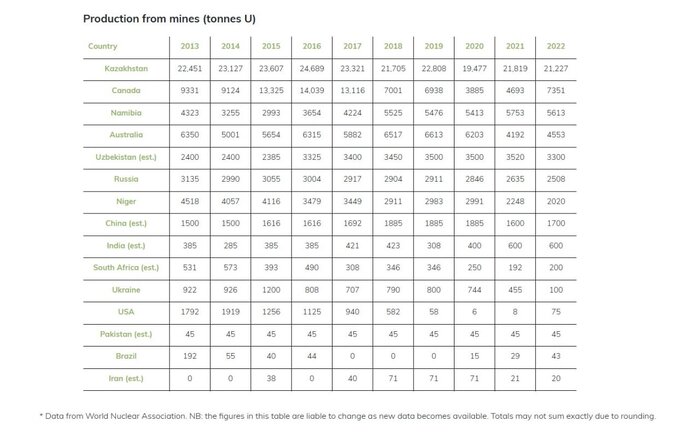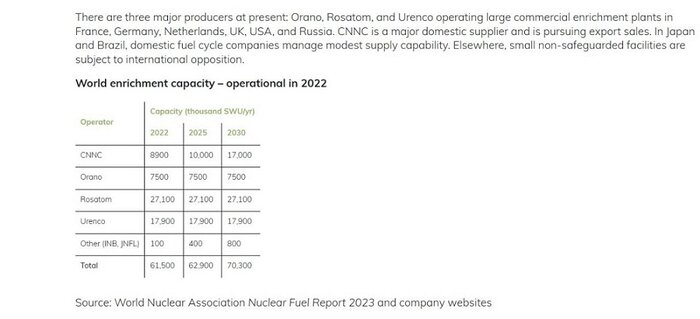Do Only Nuclear-Armed Countries Enrich Uranium?
WANA (May 03) – The U.S. Secretary of State recently described Iran’s demand for “non-military uranium enrichment” as “unprecedented” in the world. But is Iran really the only country seeking enrichment capabilities without aiming for nuclear weapons?
Marco Rubio, the U.S. Secretary of State, claimed in a recent interview that fulfilling Iran’s demand would make it “the only non-nuclear-armed country in the world to enrich uranium.” His remarks have sparked widespread reactions.
Speaking to Fox News, Rubio argued: “The only countries that enrich uranium themselves are those that possess nuclear weapons. Iran claims it does not want nuclear arms, but is demanding something unprecedented: to be the only non-nuclear-armed country enriching uranium.”
He further suggested that if Iran were truly pursuing a peaceful nuclear program, the obvious path would be to build reactors and import enriched uranium as fuel—just as dozens of countries around the world already do.
Rubio’s Iranian counterpart, Seyed Abbas Araghchi, offered the most direct rebuttal. The Iranian Foreign Minister and head of the negotiation team emphasized that “repeating a lie does not change fundamental truths.”
Posting on X, Araghchi wrote: “As one of the founding signatories of the NPT, Iran has the full right to a complete nuclear fuel cycle. Moreover, several NPT member states enrich uranium without pursuing nuclear weapons. This club includes not only Iran, but also several countries in Asia, Europe, and South America.”
Rubio’s comments prompt an important fact-check: Is Iran truly the only country enriching uranium without seeking nuclear arms?
Top Uranium Producers in the World
First, it’s important to distinguish between uranium production and enrichment. Uranium is a naturally occurring metal, and only countries with natural reserves can extract it. These producers meet global demand by exporting uranium.
According to data from the World Nuclear Association (WNA), in 2022, the largest uranium producers included Kazakhstan, Canada, Namibia, Australia, Uzbekistan, Russia, Niger, China, India, South Africa, Ukraine, the U.S., Pakistan, Brazil, Iran, Czech Republic, Romania, France, Germany, and Malawi.
While uranium has various uses, its most prominent civilian application is as fuel for nuclear power plants.

Uranium Enrichment: With or Without Nuclear Weapons
Uranium enrichment, distinct from mere production, is a far more sensitive and contentious issue internationally—primarily because high levels of enrichment are associated with military use.
Currently, companies like Orano, Rosatom, and Urenco dominate the commercial uranium enrichment market, operating large enrichment facilities in countries including France, Germany, the Netherlands, the UK, the U.S., and Russia.
Japan and Brazil also maintain domestic fuel cycle companies with moderate enrichment capacity.
According to WNA, other countries with enrichment capabilities include Argentina, India, Pakistan, Ukraine, and Iran.
Australia and South Africa are also actively working to develop or expand their enrichment capacities.

Among these, France, Germany, the Netherlands, and the UK share NATO’s nuclear weapons infrastructure. The U.S. and Russia have well-established nuclear arsenals.
India and Pakistan, which also enrich uranium, possess nuclear weapons but have never joined the Nuclear Non-Proliferation Treaty (NPT).
On the other hand, countries such as Japan, Brazil, Argentina, and Ukraine enrich uranium but do not possess nuclear weapons.
Iran, like these countries, enriches uranium without possessing or pursuing nuclear arms. Iran joined both the IAEA and the NPT in their early years and signed the Additional Protocol in 2003 to further demonstrate the legitimacy of its nuclear program.
Given these facts, the U.S. Secretary of State’s claim that “only countries with nuclear weapons enrich uranium” is demonstrably incorrect.












